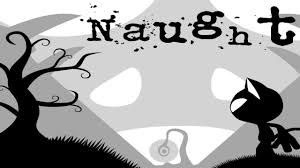naught
英 [nɔːt]
美 [nɑːt]
- n. [数] 零;无价值
- adj. 无价值的;无用的
- n. (Naught)人名;(英)诺特
星级词汇:

记忆方法
将“naught”与“not a thing”结合记忆,即“naught”表示“没有什么”,通过这种方式可以帮助记忆“naught”这个单词的意思。
以上内容由AI生成, 仅供参考和借鉴
中文词源
naught 零
来自古英语nawiht,没有,来自na,没有,词源同no,wiht,一点点,词源同whit。即一点都没有,零。
英语词源
- naught (n.)
- Old English nawiht "nothing," lit "no whit," from na "no" (from PIE root *ne- "no, not;" see un- (1)) + wiht "thing, creature, being" (see wight). Cognate with Old Saxon neowiht "nothing," Old High German niwiht, Gothic ni waihts. It also developed an adjectival sense in Old English, "good for nothing," which by mid-16c. had focused to "morally bad, wicked." In arithmetic, "the figure zero" from 1640s.
权威例句
- 1. Most election promises can be set at naught.
- 竞选时所做的许诺大都没有什么价值.
- 2. He sets at naught every convention of society.
- 他轻视所有的社会习俗.
- 3. All our good planning came to naught.
- 我们所有的好计划结果都成泡影.
- 4. How many imperial inches are there in one metric centimetre? — Naught point three nine three seven inches.
- 一厘米等于多少英寸? ——等于0.397英寸.
- 5. Like the Tehran experience, the shredding may be all for naught.
- 如同德黑兰事件中的情况一样, 切碎文件可能是徒劳的.
